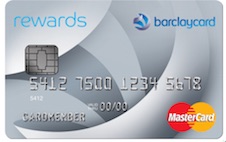PayDay Loans
How Payday Loan Works
A borrower writes a personal check payable to the lender for the amount the person wants to borrow, plus the fee they must pay for borrowing. The company gives the borrower the amount of the check less the fee, and agrees to hold the check until the loan is due, usually the borrower’s next payday. Or, with the borrower’s permission, the company deposits the amount borrowed — less the fee — into the borrower’s checking account electronically. The loan amount is due to be debited the next payday. The fees on these loans can be a percentage of the face value of the check — or they can be based on increments of money borrowed: say, a fee for every $50 or $100 borrowed. The borrower is charged new fees each time the same loan is extended or “rolled over.”
Read More
Alternatives to Payday Loans
- Consider a small loan from your credit union or a small loan company.
- Shop for the credit offer with the lowest cost.
- Contact your creditors or loan servicer
- Make a realistic budget, Contact your local consumer credit counseling service
- Find out if you have — or if your bank will offer you — overdraft protection on your checking account.
Various Payday Loan Schemes are:
-
Same Day Loans
Same Day Loan are the most common type of credit cards. They are secured by collateral. That means that like secured loans, such as mortgages or auto loans, secured credit cards are directly connected to property that a lender can seize of the cardholder fails to pay.
-
24 hour Loan
24 hour Loand are the most common type of credit cards. They are secured by collateral. That means that like secured loans, such as mortgages or auto loans, secured credit cards are directly connected to property that a lender can seize of the cardholder fails to pay.
-
$1000 Loan
$1000 Loan are the most common type of credit cards. They are secured by collateral. That means that like secured loans, such as mortgages or auto loans, secured credit cards are directly connected to property that a lender can seize of the cardholder fails to pay.
-
Local Payday
Local Payday are the most common type of credit cards. They are secured by collateral. That means that like secured loans, such as mortgages or auto loans, secured credit cards are directly connected to property that a lender can seize of the cardholder fails to pay.

